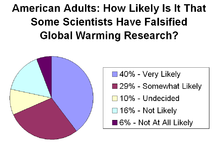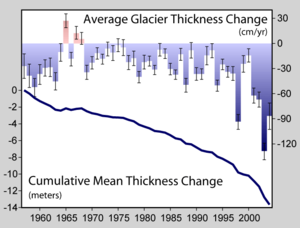AB 32 Cap and trade hearings high on speculation, low on details
May 3, 2012
By Katy Grimes
SACRAMENTO — A recent poll about the implementation of AB 32 shows that California voters and taxpayers aren’t real crazy about cap and trade or regulatory reporting regulations. Cap and trade programs mandate reduced emissions, while providing a trading mechanism for emissions “credits.”
Despite the entire program being speculative, and the dismal poll results, the California Air Resources Board is moving ahead with a cap and trade program and its first carbon auction in November.
Additionally, a strange informational hearing about cap and trade took place Wednesday in the Senate Select Committee on California and Mexico Cooperation. More of a dog-and-pony show to gin-up interest in cap and trade, the hearing was supposed to be about California and Mexico becoming carbon trading partners.
But Mexico does not have a cap and trade program, does not have a climate change law in place like AB 32, and pulled out of the Western Climate Initiative.
AB 32 Poll
The poll, authored by the AB 32 Implementation Group, submitted the polling information to the CARB, but it appears that CARB has turned a deaf ear on Californians.
The poll found:
* Support for AB 32 has declined since 2008, with a slim majority of voters still in favor.
*California voters are unwilling to pay more for energy and other essentials in order to fund GHG reduction policies.
* Nearly two-thirds of voters oppose CARB’s proposed cap and trade auction and less than a majority of informed voters support cap and trade in general as currently planned.
* Two‐thirds of voters think California is seriously on the wrong track.
* Only about a third of voters have a favorable view of the Legislature.
And once California starts down the path of carbon trading, there is no going back.
Cap and Trade and Mexico
Currently, the cap and trade program can’t support itself. Despite this, Gov. Jerry Brown, state legislators and CARB are trying to push this aggressive and untested program alone, despite a shaky economy.
Yet the hearing was held as if California and Mexico are forging ahead as part of the Western Climate Initiative.
WCI Inc.
As I reported last month, the California Air Resources Board has created a stealthy new corporation in Delaware. The Western Climate Initiative Inc., which will manage cap-and-trade programs, even has its own form of currency.
WCI Inc. states that it exists “to perform administrative and technical services to support the carbon trading market, including market monitoring of allowance auctions, and market trading of compliance instruments.”
Initially, California was to unite with other Western states to reduce carbon emissions and put an end to global warming. “However, the partners determined that they would prefer not to tackle the issue during a recession,” Assemblywoman Diane Harkey, R-Dana Point, recently explained to me. “The cost of making their states less competitive in a tough business environment outweighed the benefit.”
Harkey has been trying to get her legislative colleagues to understand that setting a goal to reduce greenhouse gas emissions to 1990 levels, with California’s increasing population, is guaranteed to cost employers and everyday people more for the electricity and products they need. That’s also one reason why so many businesses are already leaving the state.
Last November, New Mexico, Arizona, Washington, Oregon, Montana and Utah all pulled out of the Western Climate Initiative. Despite the exodus, California formally launched its own cap and trade system on January 1, 2012, with a very ambitious target of carbon emissions reductions of 80 percent by 2050.
California’s only remaining partner in the Western Climate Initiative is the Canadian province of Quebec. The province is expected to launch its own scheme in 2013, which is said to link with California.
And this is where things start to get sticky. Once California links with another carbon trader, we can no longer make changes to the plan. It has to be right the first time.
If our trading partners offer more carbon allowances to their businesses and industries than California does, it will hurt our competitive advantage, similar to the way higher in-state taxes already hurt California businesses competing against businesses in other states.
And it is important to note that the California-Quebec relationship is not trading apples-to-apples. Quebec gets 97 percent of its energy from hydroelectric sources. California is trying to reduce traditional electricity production, including hydroelectric power, and instead replace it with as much “renewable” energy as possible from wind and solar, algae and ethanol. Energy experts have been saying in recent months that California’s energy demand is too much for the alternative energy and lower usage standards.
Additionally, Quebec has only 80 regulated industries. California regulates more than 300 industries.
Hearing from the players
The requisite climate change supporters spoke at the hearing. One was Gary Gero, with Climate Action Reserve, formerly known as the Climate Action Registry. He said Climate Action Reserve is the largest offsets registry in North America, with nearly 500 offset projects in four U.S. states and Mexico, and has certified more than 24 million metric tons of greenhouse gas emission reductions.
Gero called for forest protocols, livestock protocols and ozone protocols, and is looking to be “the largest liquid North American carbon market.”
Jim Gonzales with the Renewable Energy Accountability Project, a national environmental organization, said he thinks a California-Mexico offset program is in the cards. However, many question the validity of this since Mexican industry is currently much less regulated than California businesses and industry, and Mexico does not have the strict pollution standards California is famous for.
California Air Resources Board
No hearing about climate change would be complete without testimony from CARB. Much of this hearing centered around CARB’s mandates and future implementation policies.
Richard Corey with CARB gave his usual song-and-dance about CARB’s great work. Corey gave an overview on the implementation of AB 32, California’s Global Warming Solutions Act of 2006, as well as the 2008 scoping plan, and the Renewable Portfolio Standard of 2011.
“Cap and trade acts as an economy-wide backstop,” Corey said. “We will work with other greenhouse gas emission markets and can trade allowances with each other.”
But the most important point Corey made is that CARB sets all of the carbon allowances.
With the upcoming first carbon auction in November, committee members wanted to know how this was going to impact industries within their districts, suddenly faced with being forced to implement new programs or fined for carbon emissions.
Corey said that CARB is allowing free emissions for the first period, but in the second trading period, emissions will be charged.
“A lot of industries in my district have already spent millions of dollars to clean up their act to lower emissions, and pushed it as far as the science will go,” Sen. Anthony Cannella, R-Ceres, told Corey.
Cannella was concerned that businesses have already made substantial reductions on their own, and will be punished by CARB with even stricter emission reductions. And if that is the case, the fear is that businesses will continue to flee the state.
Sen. Bob Dutton, R-Rancho Cucamonga, expressed concerned with the Mexico and California relationship, and why Mexico is no longer an “observer” of WCI Inc.
Corey couldn’t answer why Mexico left the WCI, but talked about the law just passed by the Mexican Legislature, similar to AB 32. Mexican President Felipe Calderon has not signed the bill yet.
Dutton grilled Corey about the purpose of WCI Inc., and why CARB incorporated WCI in Delaware.
Corey insisted that WCI Inc. is just an administrative function for the cap and trade program, but did not specifically address why it is incorporated in Delaware and not in California. However, he did admit that WCI Inc. will be facilitating the carbon auctions, proceeds of which will go to California.
Dutton wanted to know under what authority WCI Inc. was created. Corey said that embedded in AB 32 was authorization for CARB to create WCI Inc, and offered to provide Dutton more information after the hearing.
Cap and Trade
California’s new cap and trade program places a limit on greenhouse gas emissions from the businesses and entities responsible for approximately 80 percent of the state’s greenhouse gas emissions. CARB will issue carbon allowances to these businesses and entities, which will be able to turn around and sell them to other businesses on the open market.
The “cap” is the state-imposed limit on businesses that emit greenhouse gasses, and the “trade” is the sale of carbon credits to other businesses. Only the businesses chosen by CARB get to sell carbon credits to polluters, and profit from doing so.
Businesses will be limited on how many credits they can purchase. If a business produces more carbon emissions than the state allotted, CARB will issue stiff fines and penalties. Or the business can just reduce their production output and lose money instead.
Mexico Cap and Trade
Dr. Luis Farias, the president of Mexico’s Sustainability Commission, testified that in Mexico, it will be the private sector which makes the investment needed into alternative energy. Farias said that there are 431 projects currently under way in Mexico.
But in what sounded like a warning to California, Farias said that we need to find a way to increase rather than retard business growth. “All offsets are not created equal,” Farias said. “Standards and protocols are one thing, implementation is another.”
Alfonso Lanseros, president of CO2 Solutions in Mexico, gave a lengthy, highly technical presentation about the opportunities for California’s technology and labor in Mexico’s renewable energy development.
Wrapping up the hearing was Dorothy Rothrock with the California Manufacturers and Technology Association. Rothrock acknowledged that California has already passed AB 32 and now we must deal with it. But she said that there is a “great tension” in the implementation process, which does not have to be there.
Rothrock warned that, as California heads for the carbon auctions, it is important to keep in mind the necessity for our businesses and industries to remain competitive. If they cannot, less capital will be available, and it is likely that other states will not join us as trading partners.
However, if California does this right, we could be the leader. “We’ve a great history of imposing requirements on ourselves. We can help others get up to our standards, rather than continue to hammer on ourselves,” Rothrock said.
And Rothrock warned that linking with Quebec is a problem. “They are distant, and not a trade partner of California,” she said. “We can’t make changes after linking with anyone.”
As the hearing ended, Sen. Lou Correa, D-Santa Ana, said he had more questions, not fewer, after hearing all of the testimony. He said much more research was needed before California moves forward with a cap and trade program.
Assemblywoman Harkey opined that, if California starts to bleed more businesses, then create more carbon certificates, we will create inflation and the carbon certificates will be devalued. “I would hope that the Senate and Assembly hold banking and finance hearings to tell us how this would work,” Harkey said. “Who will be in charge behind WCI Inc.? We need to move slowly so we don’t get hosed in the meantime.”
Related Articles
Feds cloud pot picture in CA
Over the strenuous objections of some California lawmakers, the Department of Justice vowed to continue prosecuting the medical marijuana industry
Bill targets underground economy
JUNE 10, 2010 By KATY GRIMES A bi-partisan bill is moving through the Legislature that proposes to punish an employer
Court OKs constitutional challenge to new state law affecting farm industry
SACRAMENTO – A federal appeals court last week has taken the highly unusual step of finding a U.S. constitutional cause






